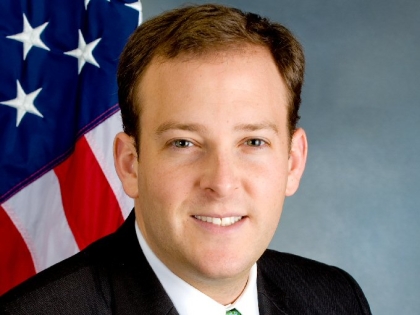
In Light Of Medford Shooting, Zeldin Co-sponsors I-STOP Prescription Drug Legislation
Lee M. Zeldin
July 26, 2011
State Senator Lee M. Zeldin (R, C, I- Shirley) announced today his co-sponsorship of legislation to crack down on prescription drug abuse. Senator Zeldin represents the Senate District where a June 19, 2011 shooting at Haven Drugs in Medford, left 4 dead.
This legislation, sponsored by Senator Andrew J. Lanza (R- Staten Island) and Assemblyman Michael Cusick (D- Staten Island), will create an online database to report and track the prescription and dispensation of certain controlled substances. It is being dubbed the “Internet System for Tracking Over-Prescribing Act,” or “I-STOP,” and would provide health care practitioners and pharmacists with the necessary information to help prevent over-prescribing, crack down on prescription drug trafficking, and identify and help treat prescription drug abusers.
“If the appropriate controls were previously in effect, Medford shooting suspect David Laffer’s prescription drug addiction could have possibly been mitigated and a tragedy could have been avoided,” said Senator Zeldin. “It is the responsibility of elected officials to make sure that this lesson is learned and future tragedies are averted. The reality is that prescription drug addiction is a daily challenge for too many New Yorkers and the necessary controls are missing. The benefits of this legislation go beyond avoiding harmful situations, by addressing the thousands of daily struggles that don’t make the news.”
“The legislation would allow our physicians and pharmacists to access real-time prescription histories to ensure that patients’ prescription use is legitimate – not lethal. I am proud to sponsor this legislation to improve health care service, and help shut down prescription drug trafficking and abuse, ” said Senator Lanza.
"The lack of an efficient information communication system between doctors and pharmacists has allowed our system to be precariously defective. Through this legislation we are creating a new system that allows for an effective closing of the gap between doctors and pharmacists and hinders the misuse of prescriptions drugs,” said Assemblyman Cusick.
“The I-STOP Act will be a strong weapon in New York’s arsenal in the battle against prescription drug abuse. This legislation will give pharmacists and physicians an on-line, real time reporting system of controlled substances that have been prescribed or dispensed to their patients, allowing them to avoid the over-prescribing of these drugs, and identify those who are abusing them,” said Assemblyman Dean Murray (R, C– East Patchogue), who has also signed on as a co-sponsor and represents the Assembly District where the Medford shootings occurred. “I want to thank Assemblyman Cusick and Senator Lanza for sponsoring this legislation which, hopefully, will reduce addiction to these drugs, and prevent tragedies like we have seen recently in our community.”
The act would amend the New York State Public Health Law to establish an online, real-time database as part of a controlled substance reporting system. Health care practitioners and pharmacists would be required to report specific information to the database when Schedule II, III, IV, and V controlled substances such as, oxycodone and morphine (Schedule II), vicodin (Schedule III), Xanax and Klonopin (Schedule IV), and pyrovalerone (Schedule V), are prescribed and dispensed.
Practitioners and pharmacists will also be required to consult the I-STOP data base, which will be maintained by the New York State Department of Health, before prescribing and dispensing any Schedule II, III, IV, or V controlled substance to their patients. This will ensure that these prescriptions are “medically necessary” and not dispensed to abusers, addicts, or drug dealers.
New York State currently operates a limited prescription drug monitoring program. This legislation will expand and improve this program by enhancing patient care while also cracking down on the practice of ‘doc-shopping,’ where patients go from clinic to clinic in search of new prescriptions for such drugs. Physicians and pharmacists will be able to use the real-time information from the I-STOP database to track potential abuses, treat addiction, and put a stop to criminals profiting of the illegal use of prescription drugs. Similar prescription drug monitoring programs are already in effect in 43 states.
